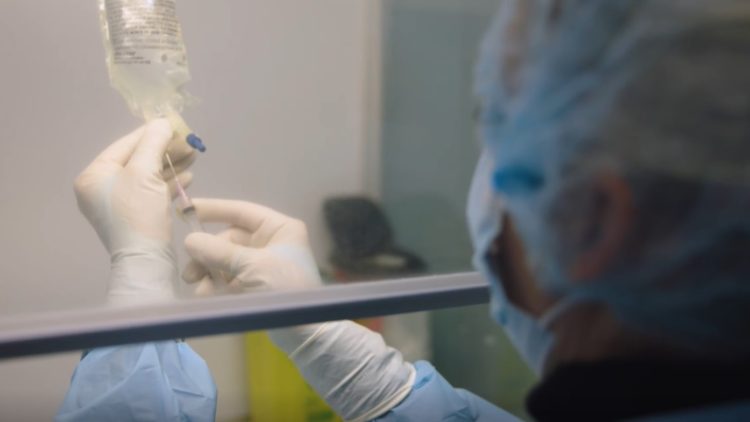Alzheimer’s disease, one of the most common forms of dementia, is a condition that robs people of their memories, their ability to think clearly, and, ultimately, their independence. Over 55 million people globally suffer from Alzheimer’s, with this number expected to double by 2050. Despite years of research and clinical trials, we still have no definitive cure. But are we getting any closer to one? In this article, we explore the scientific progress being made and discuss the potential breakthroughs that could bring us closer to curing Alzheimer’s disease.
The Complexity of Alzheimer’s Disease
Alzheimer’s disease is a progressive neurological disorder that affects the brain’s nerve cells. The two hallmark features of Alzheimer’s are the accumulation of amyloid plaques and tau tangles in the brain. These abnormal protein clusters disrupt communication between brain cells, leading to cell death and cognitive decline.
One of the primary reasons finding a cure has been so elusive is the complexity of the brain itself. It’s a network of trillions of connections, and Alzheimer’s doesn’t just affect one area—it impacts memory, thinking, and behavior, which are controlled by different regions of the brain. Researchers are still trying to understand the root causes of the disease and why it progresses so differently in various people.
Current Treatments and Limitations
Currently, there are no treatments that can cure Alzheimer’s. Existing drugs, like cholinesterase inhibitors (Donepezil, Rivastigmine) and glutamate regulators (Memantine), may offer temporary relief of symptoms or slow disease progression, but they don’t stop or reverse the damage done by the disease. The goal of these drugs is to manage symptoms, not to cure the underlying disease.
In recent years, however, the pharmaceutical industry has seen a rise in antibody-based therapies targeting amyloid plaques and tau tangles. One such treatment, Aducanumab, was approved by the FDA in 2021, although its effectiveness remains a topic of controversy in the scientific community. This approval has sparked renewed hope, but it has also underscored the challenge of finding safe and effective treatments.

The Road to Discovery: Key Advances in Research
1. Targeting Amyloid Plaques and Tau Tangles
The first major focus of Alzheimer’s research has been on the accumulation of amyloid plaques and tau tangles. These toxic proteins are considered by many scientists to be the “hallmarks” of Alzheimer’s disease. The idea is that removing these plaques from the brain could slow, or even stop, the progression of the disease.
In recent years, some promising developments have emerged. Aducanumab, mentioned earlier, is one example of an antibody treatment that aims to target and clear amyloid plaques. Despite the mixed results, it has paved the way for further research into this therapeutic approach. Additionally, several new treatments targeting tau tangles are under investigation. Drugs like LMTX and E2814 are exploring ways to prevent tau from accumulating or spread in the brain, which could have transformative potential for patients.
2. Genetic and Environmental Research
Recent genetic studies have added valuable insights into the causes of Alzheimer’s. Researchers have identified various genes that increase the risk of developing Alzheimer’s, such as the APOE-e4 gene. This gene variant is present in around 25% of the population and is linked to a higher risk of the disease. By understanding the genetic mechanisms involved, researchers are moving toward more personalized therapies based on an individual’s genetic makeup.
On the environmental side, growing evidence points to lifestyle factors that influence Alzheimer’s risk, such as diet, exercise, sleep, and mental activity. For example, studies have suggested that a Mediterranean diet, rich in healthy fats and antioxidants, may reduce the risk of developing Alzheimer’s. Brain health can also be supported by regular physical exercise, which is linked to better memory and cognitive function.
3. Stem Cell Therapy
Stem cell research offers another fascinating avenue for Alzheimer’s treatment. Scientists are investigating the potential of stem cells to regenerate damaged brain tissue and replace neurons lost to the disease. For instance, recent animal studies have shown that stem cells derived from a patient’s own body can be coaxed into forming new neurons and restoring lost cognitive functions.
While we’re still in the early stages of this research, the potential for stem cells to restore cognitive function is an exciting possibility. Clinical trials in humans are ongoing, though the technology is still several years away from being a viable treatment option.
4. Immunotherapy: A Bold New Frontier
Immunotherapy is a newer approach gaining attention in Alzheimer’s research. It involves stimulating the body’s immune system to attack and remove the harmful proteins that cause Alzheimer’s. One promising immunotherapy treatment under investigation is Anti-Tau Immunotherapy, which targets tau tangles in the brain. Similarly, researchers are exploring Anti-Amyloid Antibodies, which could work in a similar way to Aducanumab but with potentially fewer side effects.
What sets immunotherapy apart is its ability to engage the body’s immune system, which can target and remove amyloid plaques and tau tangles without directly manipulating the brain’s delicate environment.
Why Hasn’t a Cure Been Found Yet?
While these breakthroughs are encouraging, the road to a cure is long and fraught with challenges. The complexity of the human brain makes it extraordinarily difficult to target specific areas without causing unintended consequences. Moreover, Alzheimer’s disease is not a single disease but a group of disorders with varying underlying causes and progression rates. What works for one person may not work for another, and the disease’s slow progression means that many treatments only show their effects after several years.
Additionally, clinical trials in Alzheimer’s research have been notoriously difficult to conduct. Because of the disease’s gradual onset, many participants in trials may not show significant symptoms until years after the damage has begun. By the time a patient is diagnosed, it’s often too late to reverse the damage already done.

The Role of Early Diagnosis
Early diagnosis is considered one of the most critical factors in advancing Alzheimer’s treatments. Identifying Alzheimer’s in its earliest stages allows for more effective intervention before irreversible damage occurs. In fact, recent advances in brain imaging and biomarkers (such as blood tests) are making it easier to detect Alzheimer’s earlier than ever before.
Tests that can identify amyloid plaques, tau tangles, and other biomarkers may soon become part of routine medical checkups, which could lead to faster diagnosis and more tailored treatments. Detecting Alzheimer’s at an early stage also means that treatments can be introduced when the disease’s progression is still relatively slow.
Looking Ahead: What the Future Holds
The search for a cure for Alzheimer’s is far from over, and the progress being made in both clinical and genetic research is promising. While a cure may still be years or even decades away, scientists are optimistic that one day, we will have treatments that not only halt Alzheimer’s in its tracks but perhaps even reverse its effects.
Some of the more hopeful projections include advancements in precision medicine, where treatments will be tailored to the individual’s genetic profile and specific disease stage, and gene therapy, where researchers might one day be able to edit out the faulty genes responsible for Alzheimer’s.
Additionally, artificial intelligence (AI) and machine learning are beginning to play a crucial role in Alzheimer’s research. These technologies can analyze vast amounts of data quickly and accurately, helping scientists predict disease progression, identify potential biomarkers, and design better clinical trials.
Conclusion: Are We Close to a Cure?
In short, while we’re not quite there yet, we are closer than ever to finding a cure for Alzheimer’s disease. Thanks to a deeper understanding of the disease at the molecular level, the development of new therapies, and advances in early detection, the future looks promising. However, as with all scientific progress, patience is required. The path to a cure is long, but the strides we’ve made in understanding and combating Alzheimer’s offer hope for the future.










































